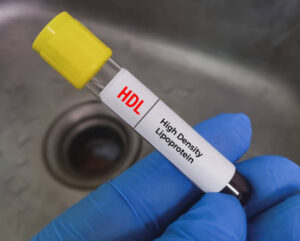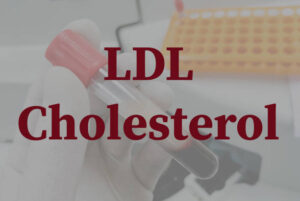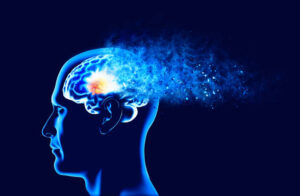What is Fatigue ?

Fatigue is a common symptom. Almost everyone feels it during short-term illness. Fortunately, fatigue usually goes away when the illness is over.
But sometimes fatigue doesn’t go away. It doesn’t get better with rest. And the cause might be unclear.
Fatigue reduces energy, the ability to do things and the ability to focus. Ongoing fatigue affects quality of life and state of mind.
Causes
Most of the time fatigue can be traced to one or more lifestyle issues, such as poor sleep habits or lack of exercise. Fatigue can be caused by a medicine or linked to depression. Sometimes fatigue is a symptom of an illness that needs treatment.

Lifestyle factors
Fatigue may be related to:
Conditions
Exhaustion that doesn’t let up might be a sign of:
. Anemia— a condition in which the body doesn’t get oxygen due to a lack of healthy red blood cells.
How can I ease or relieve fatigue at home?


Role of homeopathy

The appropriate homeopathic treatment for Fatigue depends on your constitutional type, includes your physical, emotional, and psychological makeup. An experienced homeopath assesses all these factors and the causes behind fatigue and accordingly select the medicine.
=======================================================================
Book your consultation for best homeopathic treatment and remedies at BEST HOMEOCARE

Heat emergencies

You shouldn’t take heat emergencies lightly. These are health crises, and exposure to hot climates can cause serious, potentially life-endangering symptoms.
Heat emergencies are health crises caused by exposure to hot weather and sun. Heat emergencies have three stages: heat cramps, heat exhaustion, and heatstroke. All three stages of heat emergency are serious.
If you live in hot climates or play sports in the summertime, you should know how to spot the symptoms of heat emergency. Getting treatment in the early stages of this condition can prevent heat stroke. Heat stroke can be fatal or cause lifelong complications.
What Are the Signs and Symptoms of Heat Emergency?

Heat Cramps
Heat cramps are the first stage of heat emergency. They usually happen when you’ve been physically active in the heat, but they can also occur if you haven’t been active.
Heat cramps are especially likely in the elderly or small children, overweight people, and people who have been drinking alcohol. Muscle pain and tightness are symptoms of heat cramps.
Heat Exhaustion
Symptoms of heat exhaustion include:
Heatstroke

With heatstroke, all the symptoms of heat exhaustion may be present, plus:
Sweating may be present in heatstroke. A person who is experiencing heatstroke might have very dry skin from dehydration.
Why Do Heat Emergencies Happen?
Heat emergencies usually occur when someone has exercised too much in hot weather. Being confined or trapped in a place that heats up, such as a car, is also a cause of heat emergencies.
Heat emergencies are more common in:
These risk factors are due to difficulty regulating the internal body temperature.
Older Adults and Heat Emergencies

During a period of hot weather, older adults who live alone are at particular risk for heat emergencies.
A study of 739 heat-related deaths in Chicago in 1995 found that older adults who lived alone but made daily connections with their friends and families were much more likely to avoid a fatal heat emergency.
If your area is experiencing high temperatures, make sure to regularly check on older adults and offer to help them escape the heat if you can.
Children and Heat Emergencies

Children are especially vulnerable to heat emergencies. If they’re playing in hot weather, they might be having so much fun, they don’t recognize the warning signs. Check on children frequently and make sure they have plenty of water.
Children can also die from heat-related illnesses when they’re left in cars or other vehicles, such as school buses. Never leave a child alone in a car — even if you think it’s not hot enough for them to be harmed. Always check a bus or carpool to make sure no one is left behind.
How Can Heat Emergencies Be Prevented?

The best way to avoid a heat emergency is to stay in the shade or in a ventilated, air-conditioned area during the hottest parts of the day.
If you have to be outside during those times, take precautions. For example:
Role of homeopathy in heat emergencies

Homoeopathy today is a rapidly growing system and is being practiced all over the world. It strength lies in its evident effectiveness as it takes a holistic approach towards the sick individual through promotion of inner balance at mental, emotional, spiritual and physical levels. When heatstroke is concerned there are many effective medicines available in Homoeopathy , but the selection depends upon the individuality of the patient , considering mental and physical symptoms.
=======================================================================
Book your consultation for best homeopathic treatment and remedies at BEST HOMEOCARE

What is Melasma?

Melasma is a common skin problem caused by brown to gray-brown patches on the face. Most people get it on their cheeks, chin, nose bridge, forehead, and above the upper lip. It is more common in women than men. Pregnancy is a common cause of melasma.
Sunburn

Sunburn is inflamed, painful skin that feels hot to the touch. It often appears within a few hours of being in the sun too long. You can get sunburn relief with simple self-care measures such as taking pain relievers and cooling the skin. But it may take days for the sunburn to fade.
There are three types of melasma and they have to do with the depth of the pigment. A Wood’s lamp that emits black light may be used to determine the depth of the pigment. The three types are:

There are two main causes of melasma: radiation, whether ultraviolet, visible light, or infrared (heat) light; and hormones.
Ultraviolet and infrared radiation from the sun are key in making melasma worse. Other possible causes of melasma include:

Melasma causes light brown, dark brown, and/or bluish patches or freckle-like spots on your skin. Sometimes the patches can become red or inflamed. Melasma appears in six locations or a combination of locations on your skin:
Your healthcare provider will decide for sure if you have melasma or another type of skin disorder.

Homeopathy relies on understanding each person’s unique symptoms, responses to diseases, and potential for healing to diagnose and treat illnesses. Homeopathy is a medical approach based on the idea that the body is capable of healing itself. Practitioners use tiny quantities of natural ingredients, such as plants and minerals, as they promote healing.
In addition to treating the symptoms of melasma, homeopathic treatment seeks to determine the patient’s individual vulnerability and the underlying causes of the condition. The selection of homeopathic can be dependent upon a skin pigmentation treatment number of factors, including the etiology of the melasma, the patient’s individual experiences, and the specific triggers that exacerbate or mitigate the illness. The aim of homeopathic medicine for melasma is to treat the condition with a customized, comprehensive approach that takes into consideration the unique needs of each patient.
For personalized treatment and the best homeopathic treatment, please visit our clinic. Our experienced homeopath is dedicated to helping you achieve optimal skin health through tailored homeopathic solutions.
Schedule a consultation today and take the first step towards healthier, radiant skin.

What is homeopathic case taking?

In Homoeopathy “case taking and interrogation” involves unique technique to individualize a patient, i.e., how this patient is different from other patients who are suffering with the same disease, or we can say, case taking is a stepping stone to repertorisation . This is a step, which facilitates the gathering of the data pertaining to what is to be cured in the diseased person. It is said that “A well taken case is half cured case”
The long case taking at times becomes irritating for patients, having to revisit all his symptoms and traumas, feeling and chronology of the events. Here again, the physician is expected to offer a helping hand. Reassurance of the patient about the importance of doing so helps the patient in building confidence in the physician. It assures that his explanations are helpful in understanding the core of his ailments
The case taking process not only develops a required healthy doctor-patient relationship, but also creates a sense of security in the individual and helps him to get the best cure and laurels to our system of healing.
Why is the case taking important in homeopathy?

This process of case taking helps in getting the totality of symptoms and getting the right similimum /medicine. -It helps in finding out the totality of symptoms for the selection of a Homeopathic remedy. -It helps in finding the nature of the disease whether it is acute or chronic, curable or incurable.
How case taking helps….
-It helps in getting the complete knowledge of the disease
-It helps in finding out the totality of symptoms for the selection of a Homeopathic remedy.
-It helps in finding the nature of the disease whether it is acute or chronic, curable or incurable.
-It helps in finding the cause of the disease.
-It helps in analyzing and evaluating the symptoms
What is the difference between allopathic case taking and homeopathic case taking?

Allopathy relies on modern medicine and treatments that target specific symptoms, while homeopathy emphasizes holistic healing and the use of highly diluted natural substances. It is always advisable to consult a qualified healthcare professional before deciding on a particular treatment approach.
What questions does a homeopath can ask from you?

The initial evaluation will be at least an hour and perhaps as much as two or three hours long. The homeopath will spend that time trying to understand your particular symptoms.
In addition to asking about your physical, mental, and emotional complaints or challenges, the practitioner will try to learn what makes the symptoms better or worse, what kinds of foods you crave or abhor, what your sleep patterns are like, the content and patterns of your dreams, your major fears, your weather preferences, and more. The homeopath will also probably ask you to give specific descriptions of your sensations because homeopaths find this very helpful. (For example, one client reported that the pain in his abdomen felt “like a live animal growling.”)
======================================================================
Book your appointment today for treatment and medication


You call it high cholesterol. Your doctor calls it Hyperlipidemia or dyslipidemia. No matter what name you use, it’s a common problem. The term covers several disorders that result in extra fats, also known as lipids, in your blood. You can control some of its causes, but not all of them.
Types of lipids
Your body contains several kinds of lipids. The main types you’ve heard of are probably HDL cholesterol and LDL cholesterol, also known as “good” and “bad” cholesterol.

HDL stands for “high-density lipoprotein.” This type carries cholesterol through your blood to your liver, where it’s used to build cells and make hormones, among other things. Your liver gets rid of cholesterol that’s not used. If you don’t have enough HDL, cholesterol builds up in your blood instead of being carried away by your liver.

LDL stands for “low-density lipoprotein,” the type known as “bad” cholesterol. It causes buildup in your arteries. Too much of it can lead to heart disease.
Triglycerides are another type of lipid. This is the most common type of fat in your body. They mostly come from foods you eat that are high in fat.

Another type is very low-density lipoprotein, or VLDL. It’s considered “bad” cholesterol because too much raises your risk of heart disease. It’s estimated that 93 million adults in the U.S. have high cholesterol.
Hyperlipidemia is treatable, but it’s often a lifelong condition. You’ll need to watch what you eat and also exercise regularly. You might need to take prescription medication, too.The goal is to lower harmful cholesterol levels. Doing so can reduce your risk of heart disease, heart Attack, stroke, and other problems.
Hyperlipidemia has many causes. Some are related to lifestyle, and some are the result of medical issues.
Diet

Cholesterol, a waxy substance, is a type of fat your body makes. It can also come from what you eat. Foods that have cholesterol, saturated fat, and trans fats can raise your blood cholesterol level. These include:
Lifestyle

Your habits also can play a role in hyperlipidemia. You’re at higher risk if you:
Medical conditions

Some health issues affect your cholesterol levels. They include:
What is mixed hyperlipidemia?

When you have this, you have high triglycerides and LDL, as well as low HDL. It’s an inherited condition, part of a group called “familial hyperlipidemia.” It’s the most common type found among young people who have had heart attacks.
Familial hypercholesterolemia is a genetic condition that causes high LDL only. Another inherited condition that affects your cholesterol is familial hypertriglyceridemia. When you have this, your body produces too much VLDL. As a result, your VLDL and triglyceride levels will be high.

Most people with hyperlipidemia can’t tell that they have it at first. A blood test is the only way to find out if you have it. It’s not something you can feel, but you may notice the effects of it someday. Cholesterol, along with triglycerides and other fats, can build up inside your arteries. This makes the blood vessels narrower and makes it more difficult for blood to get through. Your blood pressure could go up. The narrowing of your arteries could cause several problems:
Coronary artery disease
CAD is the most common form of heart disease in the U.S. When your arteries get clogged, it becomes harder for your heart to get the blood it needs to work correctly. That can lead to a heart attack or heart failure. You may not realize it’s happening until you have chest pain (also called angina) or some other symptoms of a heart attack.
Heart attack
The stuff clogging up your arteries (called plaques) can break off, creating a blood clot. The clot might block the flow of blood in your artery right there, or it might break free and travel down an artery, creating a blockage farther along. If the blockage causes part of your heart to stop getting blood flow, you’re having a heart attack. Symptoms of a heart attack include:
Stroke
When you have a stroke, a clot travels through your body and blocks blood flow to part of your brain. Symptoms of a stroke include:
Fatty growths
If you have inherited hyperlipidemia, you might see yellow, fatty deposits under your skin. These are places where cholesterol has built up. If they’re around your eyelids next to your nose, they’re called xanthelasmas. These deposits also can show up in other places on your body, and when they do, they’re called xanthomas. The most common places to get them are your elbows, knees, other joints, hands, feet, and butt.

To diagnose hyperlipidemia, your health care provider will order a test that checks the levels of cholesterol and triglycerides in your blood. Names for this test include lipid panel, lipid test, lipoprotein panel, and lipid profile. Your doctor should check your lipid levels regularly.
Lipid panel
The results of this test show the levels of LDL Cholesterol: The “bad” cholesterol that builds up inside your arteries.
Role of homeopathy in hyperlipidemia

There is a possibility to control and treat the hyperlipidemia with the help of sound knowledge of materia medica and Repertory because homeopathy believes in the patient not in a disease. Our literature is full of information about this clinical condition and related information. In clinical practice most of the time we use to prefer constitutional remedy along with organ remedies to control hyperlipidemia and most of the time works wonder. Only the classical approach is not fit for this case. because of the paucity of symptoms and most of these cases required several remedies (layered prescribing) in a single case.
Diet and Exercise in the Management of Hyperlipidemia

Dietary factors that influence lipid levels include modification of nutritional components, consumption of specific foods, use of food additives and supplements, and major dietary approaches. The most beneficial changes result from reducing intake of saturated and trans fats; increasing intake of polyunsaturated and monounsaturated fats; fortifying foods with plant stanols or sterols; iso calorically adding tree nuts to the diet; consuming one or two alcoholic drinks per day; and adopting a Portfolio, Mediterranean, low-carbohydrate, or low-fat diet. Smaller but still beneficial effects result from reducing intake of dietary cholesterol, increasing intake of soluble fiber and soy protein, and eating fatty marine fish or taking marine-derived omega-3 fatty acid supplements. Red yeast rice supplements have effects similar to those of statin medications and are better tolerated in some patients. Regular aerobic exercise has beneficial effects on lipid levels, particularly if performed for at least 120 minutes per week. Brief physician counseling will have relatively small effects on unselected patients, so efforts should be concentrated on patients who are motivated and ready to make lifestyle changes.
======================================================================
Book your appointment today for treatment and medication at

What Are Tonsil Stones?

Tonsil stones are small lumps of hard material that form in the tonsils. Tonsil stones can cause bad breath though they’re usually not painful or harmful. They’re also called tonsilliths. You can usually treat tonsil stones at home. But in some cases, you may need surgery to remove the tonsils.
What are tonsils?

Tonsils are part of your immune system, which helps protect against infection. Tonsils filter bacteria and viruses that enter your body through your mouth. Removing the tonsils does not affect your immune system. Your tonsils are two round, fleshy masses in the back of your throat(pharynx). Part of your immune system, your tonsils are like lymph nodes. They help filter out germs that enter through your nose or mouth to protect the rest of your body from infection. Tonsils are also called palatine tonsils or faucial tonsils.
Tonsil Stone Causes

Your tonsils are filled with nooks and crannies where bacteria and other things, including dead cells and mucus, can get trapped. When this happens, the debris can bond together. Tonsil stones form when this debris hardens, or calcifies. This tends to happen most often in people who have long-term inflammation in their tonsils or repeated cases of tonsillitis. Many people have small tonsilloliths, but it’s rare to have a large tonsil stone.
Tonsil Stone Symptoms

Small tonsil stones may not cause any symptoms that you’d notice. Even when they’re large, some tonsil stones are found only after X-rays or CT scans. Symptoms include:
Tonsil Stone Diagnosis

Your doctor can usually diagnose tonsil stones with a physical exam. If they’re hidden in the folds of your tonsils, you might need imaging tests, such as CT or MRI scans, to spot them.
Tonsil Stone Complications
Large tonsil stones can cause swollen tonsils and give you trouble swallowing. Tonsil stones can also sometimes trigger infections.

In many cases, you can remove tonsil stones at home. Here are some things you can try:

You can’t always prevent tonsil stones. But there are things you can do to reduce your risk:
Role of homeopathy in Tonsil Stone

Homeopathic medicines for tonsils stones are prescribed symptomatically for every individual case. These medicines are made of natural substances and cause no side effects. They help remove and dissolve the existing tonsil stones from the folds of the tonsils and also help reduce the body’s tendency to create tonsil stones.
Homeopathy possesses a significant role in building the immunity system in the body of patients suffering from tonsils and other ailments. The medicines filter and kill the infections that have entered the mouth. The medicines also help in producing antibodies to further fight germs and save the body from infection.
======================================================================
Book your appointment today for treatment and medication


Dementia is a general term for loss of memory, language, problem-solving, logical reasoning and other thinking abilities that are severe enough to interfere with daily life. It happens when the parts of your brain used for learning, memory, decision making, and language are damaged or diseased.
Causes and symptoms

Alzheimer’s disease is the most common cause of dementia. Other grounds leading to dementia can be brain injury, depression, vitamin deficiency, excess use of alcohol or drugs, obesity, smoking, infection, diabetes (this list is not exhaustive).
Signs to watch for sensing this problem can be short-term memory loss, communication problems, getting lost, trouble with familiar tasks like paying bills or making meals, remembering important events or dates, personality changes like depression, agitation and mood swings (this list is not comprehensive).
Homeopathy perspective towards dementia

Classical homeopathy uses holistic approach for treatment which means that underlying causes are addressed in detail before starting the treatment. Homeopathy medicine is prepared from naturally occurring substances which are completely safe to use and are selected individually for every case. It helps to improve mental function by slowing down the progression of dementia and eventually improving the quality of life.
An experienced homeopath assesses physical, emotional, and psychological makeup when determining the most appropriate treatment for each individual.
================================================================
Contact us for best homeopathic treatment of these problems . We use contemporary classical homeopathy techniques for saying good bye to your health issues.
================================================================



| Problem | Common Symptoms | Prevention Strategies |
| Allergies | Headache, sore throat, coughing, sneezing, fatigue, runny or stuffy nose, fatigue, watery/itchy eyes, short-term loss of smell | Try to take shower after spending time outside and keep your home/car windows closed, stay connected online to update yourself about air quality of your city and daily pollen counts in your area |
| Common cold | Runny nose, body aches, headache, sneezing, congestion, sore throat, cough | Adequate sleep, Balanced diet, Avoiding crowded areas, covering nose/mouth while coughing or sneezing, Reduce stress level |
| Deficient Vitamin D | Depression, Fatigue and exertion, Bone and back pain, Hair loss, slow healing of wounds, high frequency of getting sick by infections | Nutrient rich diet, Increase sun exposure, Intake of Vitamin D supplements |
| Arthritis | Joint pain, swelling/stiffness/tenderness in joints, fatigue | Regular exercise/yoga, Addition of fruits and vegetables in daily diet, Control body weight |
| Sore Throat | Nasal congestion, Muscle and body aches, Itchy/watery eyes, loss of appetite, swollen glands in the neck, hoarse voice | Avoid crowded places/sharing food with others especially if they are sick, Cover mouth and wash hands often |
| Flu | Persistent cough, diarrhea, body ache, chest tightness, nausea and vomiting, excessive fatigue, fever | Adequate rest, Healthy diet, Avoid crowded places, Washing hands often, Cover nose/mouth while sneezing/coughing |
| Norovirus | Diarrhea, abdominal pain/cramps, muscle pain, nausea and vomiting | Wash hands thoroughly after using toilet, before preparing and eating food, Clean restrooms/toilets with disinfectants, Cook seafood thoroughly |
| Ear infections | Loss of hearing in the affected ear, ear pain, vomiting, diarrhea, dizziness, feeling ill | Stay in smoke-free environment, Avoid cotton swabs in the ear, Follow hygienic practices like washing hands, keeping surroundings clean etc |
| Bronchitis | Shortness of breath, Body aches, Sore throat, chest tightness, Wheezing | Leave smoking, Avoid throat irritating things like perfumes, dust, pets etc, Disinfect doorknobs, countertops and other such touched surfaces. |
| Seasonal affective disorder | Exertion, weight gain, sadness, trouble in concentration, greater need of sleep | Self-care, Physical exercise, Vitamin D dietary supplements |
================================================================
Contact us for best homeopathic treatment of these problems . We use contemporary classical homeopathy techniques for saying good bye to your health issues.
================================================================
Nasal polyps are soft, painless, noncancerous growths on the lining of your nasal passages or sinuses. They hang down like teardrops or grapes. They result from chronic inflammation and are associated with asthma, recurring infection, allergies, drug sensitivity or certain immune disorders.
Small nasal polyps may not cause symptoms. Larger growths or groups of nasal polyps can block your nasal passages or lead to breathing problems, a lost sense of smell and frequent infections.
Nasal polyps can affect anyone, but they’re more common in adults. Medications can often shrink or eliminate nasal polyps, but surgery is sometimes needed to remove them. Even after successful treatment, nasal polyps often return.
HOMEOPATHIC VIEWPOINT: as mentioned above surgery is not the ultimate treatment for nasal polyps as they can return again. To treat the patient successfully it is important to reach the root cause and eliminate it in order to give relief to the patient. With individualistic homeopathic medicines polyps can be treated gently and in wholesome way and also eliminating the tendency to recurrence by treating the heightened sensitivity which acts as a root cause thus prompting the development of polyps. Homeopathic treatment is the most gentle and safe way to treat the suffering of the patient irrespective of age, as homeopathic medicines are safe for children, adults and old people alike.
For further information on nasal polyps please read below.
Nasal polyps are associated with irritation and swelling (inflammation) of the lining of your nasal passages and sinuses that lasts more than 12 weeks (chronic sinusitis).
However, it’s possible to have chronic sinusitis without nasal polyps.
Nasal polyps themselves are soft and lack sensation, so if they’re small, you may not be aware you have them. Multiple growths or a large polyp may block your nasal passages and sinuses.
Common signs and symptoms of chronic sinusitis with nasal polyps include:
A runny nose
Persistent stuffiness
Postnasal drip
Decreased or absent sense of smell
Loss of sense of taste
Facial pain or headache
Pain in your upper teeth
A sense of pressure over your forehead and face
Snoring
Frequent nosebleeds
Scientists don’t yet fully understand what causes nasal polyps, why some people develop long-term inflammation, or why irritation and swelling (inflammation) triggers polyps to form in some people and not in others. The swelling occurs in the fluid-producing lining (mucous membrane) of your nose and sinuses.
There’s some evidence that people who develop polyps have different immune system responses and different chemical markers in their mucous membranes than do those who don’t develop polyps.
Nasal polyps can form at any age, but they’re most common in young and middle-aged adults.
Nasal polyps may form anywhere in your sinuses or nasal passages, but they appear most often in an area where sinuses near your eyes, nose and cheekbones all drain through winding passages into your nose.
Any condition that triggers long-term irritation and swelling (inflammation) in your nasal passages or sinuses, such as infections or allergies, may increase your risk of developing nasal polyps.
Conditions often associated with nasal polyps include:
Asthma, a disease that causes the airway to swell (inflame) and narrow
Aspirin sensitivity
Allergic fungal sinusitis, an allergy to airborne fungi
Cystic fibrosis, a genetic disorder that results in abnormally thick, sticky fluids in the body, including thick mucus from nasal and sinus linings
Churg-Strauss syndrome (eosinophilic granulomatosis with polyangiitis), a rare disease that causes the inflammation of blood vessels
Vitamin D deficiency, which occurs when your body doesn’t have enough vitamin D
Your family history also may play a role. There’s some evidence that certain genetic variations associated with immune system function make you more likely to develop nasal polyps.
Nasal polyps can cause complications because they block normal airflow and fluid drainage, and also because of the long-term irritation and swelling (inflammation) underlying their development.
Potential complications include:
Obstructive sleep apnea. This is a potentially serious condition in which you stop and start breathing frequently during sleep.
Asthma flare-ups. Chronic sinusitis can worsen asthma.
Sinus infections. Nasal polyps can make you more susceptible to sinus infections that recur often.
You may help reduce your chances of developing nasal polyps or having nasal polyps recur after treatment with the following strategies:
Manage allergies and asthma. Follow your doctor’s treatment recommendations. If your symptoms aren’t well controlled, talk to your doctor about changing your treatment plan.
Avoid nasal irritants. As much as possible, avoid breathing airborne substances that are likely to contribute to swelling or irritation in your nose and sinuses, such as allergens, tobacco smoke, chemical fumes, and dust and fine debris.
Practice good hygiene. Wash your hands regularly and thoroughly. This is one of the best ways to protect against bacterial and viral infections that can cause inflammation of the nasal passages and sinuses.
Humidify your home. Using a humidifier may help moisten your breathing passages, improve the flow of mucus from your sinuses, and help prevent blockages and inflammation. Clean the humidifier daily to prevent bacteria from growing
Tonsillitis is inflammation of the tonsils, two oval-shaped pads of tissue at the back of the throat — one tonsil on each side. Signs and symptoms of tonsillitis include swollen tonsils, sore throat, difficulty swallowing and tender lymph nodes on the sides of the neck.
Most cases of tonsillitis are caused by infection with a common virus, but bacterial infections also may cause tonsillitis.
HOMEOPATHIC VIEWPOINT: tonsillitis although an acute infection has a tendency to keep recurring so much as from childhood into adulthood. The only permanent treatment for tonsillitis is tonsillectomy, however with specific individually chosen homeopathic remedies this tendency and recurrence can be treated successfully. The causative factors though the bacterial or viral infection is able to act upon the patient due to weakened immunity, so homeopathic medicines help to build up the immunity so that the body becomes capable to fight off the infections. Therefore homeopathic treatment not only helps to alleviate the symptoms but also to boost up the immune system.
For further information on tonsillitis please read below.
Tonsillitis most commonly affects children between preschool ages and the midteenage years. Common signs and symptoms of tonsillitis include:
In young children who are unable to describe how they feel, signs of tonsillitis may include:
Tonsillitis is most often caused by common viruses, but bacterial infections also can be the cause.
The most common bacterium causing tonsillitis is Streptococcus pyogenes (group A streptococcus), the bacterium that causes strep throat. Other strains of strep and other bacteria also may cause tonsillitis.
The tonsils are the immune system’s first line of defense against bacteria and viruses that enter your mouth. This function may make the tonsils particularly vulnerable to infection and inflammation. However, the tonsil’s immune system function declines after puberty — a factor that may account for the rare cases of tonsillitis in adults.
Risk factors for tonsillitis include:
Inflammation or swelling of the tonsils from frequent or ongoing (chronic) tonsillitis can cause complications such as:
If tonsillitis caused by group A streptococcus or another strain of streptococcal bacteria isn’t treated or if antibiotic treatment is incomplete, your child has an increased risk of rare disorders such as:
The germs that cause viral and bacterial tonsillitis are contagious. Therefore, the best prevention is to practice good hygiene. Teach your child to:
To help your child prevent the spread of a bacterial or viral infection to others: